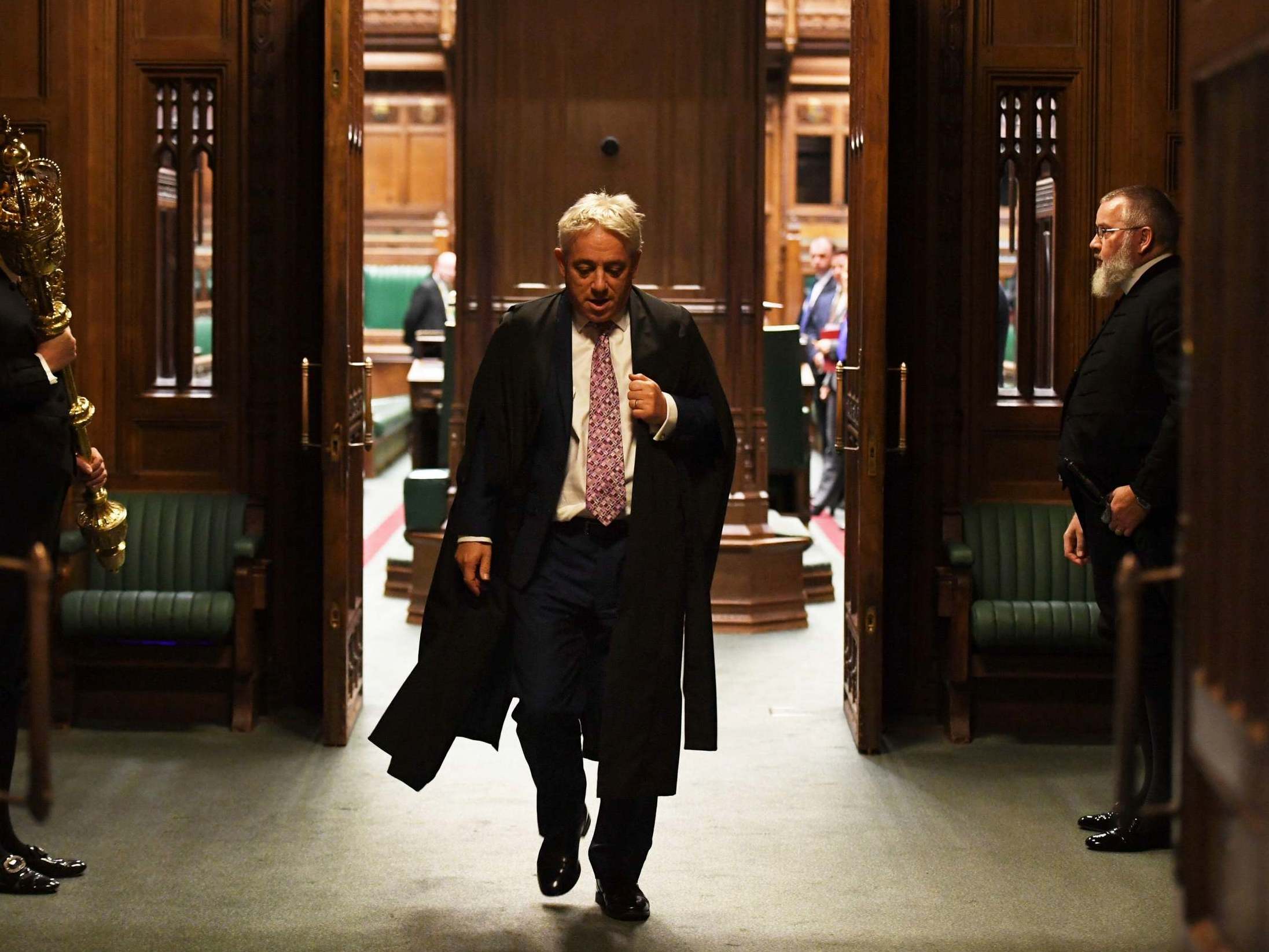Lindsay Hoyle: New Commons speaker declares parliament 'bullying culture' over in veiled swipe at John Bercow
Comments come amid allegations against predecessor in speaker's chair
Your support helps us to tell the story
From reproductive rights to climate change to Big Tech, The Independent is on the ground when the story is developing. Whether it's investigating the financials of Elon Musk's pro-Trump PAC or producing our latest documentary, 'The A Word', which shines a light on the American women fighting for reproductive rights, we know how important it is to parse out the facts from the messaging.
At such a critical moment in US history, we need reporters on the ground. Your donation allows us to keep sending journalists to speak to both sides of the story.
The Independent is trusted by Americans across the entire political spectrum. And unlike many other quality news outlets, we choose not to lock Americans out of our reporting and analysis with paywalls. We believe quality journalism should be available to everyone, paid for by those who can afford it.
Your support makes all the difference.New Commons speaker Lindsay Hoyle has declared parliament’s “bullying culture” over, in a veiled swipe at his predecessor John Bercow.
Mr Bercow has faced allegations, which he denies, of bullying staff and Commons officials and the issue is understood to be under consideration by the panel which vets nominations for peerages.
Speaking at a Westminster lunch, Sir Lindsay said he had not personally been bullied by Bercow or witnessed any incidents of bullying behaviour.
But he said that the claims should be properly reviewed before a decision is made on whether his predecessor should be elevated to the House of Lords.
Bercow, who stood down on 31 October, is understood to have been nominated for a peerage by Labour leader Jeremy Corbyn, after Boris Johnson broke with precedent by refusing to put him forward for a place in the Lords.
But his nomination has hit obstacles in recent days as former clerk of the Commons Lord Lisvane and ex-Black Rod David Leakey submitted allegations about his behaviour.
Sir Lindsay, who confirmed he had once clashed with Mr Bercow when serving as his deputy, said he had not seen any bullying.
“Personally, I can honestly say I didn’t witness it but I do speak to people who may or may not have been subjected,” he said.
“So I do keep in contact with some members of staff of this House and I don’t want to go deeper than that because I don’t think it’s fair to them either.”
Hoyle denied reports that he had said Mr Bercow’s nomination for a peerage should be allowed to go through, saying instead that he believed “his name should go forward for others to decide”.
"When somebody's name goes forward to the Lords, people are checked and issues are reviewed about whether they are a fit person,” he said. ”Part of that vetting will be looking into people's conduct. If there is something wrong, you would expect the process to find it.
“I’m making no judgement, I’m making no decision. All I’m saying is, let’s do it right way not the wrong way.“
On his own dealings with Bercow in nine years as his deputy, Hoyle said: “We had a working relationship - I think that’s the best way to describe it. Only once did we have a slight disagreement. I will stand my ground. I will stand up for others.”
In a clear attempt to draw a line under the Bercow era, he told the parliamentary press gallery lunch that he wanted to “change the image of parliament”.

“The bullying culture is over,” he said. “We are not going to tolerate it… Let’s have a new beginning. Let’s have a new start.”
Sir Lindsay said that the House of Commons had been “an unhappy place to work” for MPs and staff.
He admitted that "MPs haven't always been the best employers", as he backed trade union recognition for staff.
“I think there has been bullying in parliament. I’ve never shied away from that,” said Sir Lindsay. “It could be MP on MP, it could be staff on staff.
“When an MP says to me ‘I don’t want to stand any more, it’s not a place I want to be’, we do know there are issues.”
He warned that MPs’ behaviour in the House had damaged public perceptions of democracy, and said it was time for a “culture change” to counter its negative reputation.
And more broadly, he added: “I think people have reflected on the way we speak to each other, the threats and intimidation, it was not a nice place. What I wanted to do was change that.
“In the end, if the chamber is more calm and the way we speak to each other is better, I think that people reflect differently.”

Join our commenting forum
Join thought-provoking conversations, follow other Independent readers and see their replies
Comments